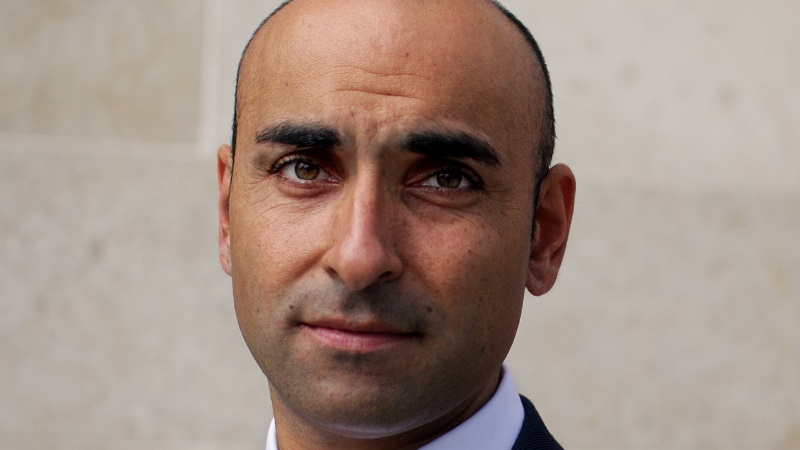The rising cost of energy and transport has fuelled a record rise in UK inflation with the latest annual figures exceeding expectations at 5.4%.
The consumer price index has not hit that level since the current measure of inflation was introduced in 1997, according to the Office of National Statistics. Historic modelling shows the last time it hit this level was three decades ago in March 1992.
“Inflation is going to pile serious pressure on UK households in the next few months, particularly when combined with the tax rises the chancellor has planned for April,” said AJ Bell head of investment analysis Laith Khalaf (pictured).
“The main issue is that price rises are being most keenly felt in energy and transport, areas where expenditure is unavoidable, and which constitutes a bigger slice of the budgets of those on lower incomes.”
Labour rather than oil the biggest inflation threat in 2022
Looking ahead, Khalaf said the current spike in inflation may recede if commodity prices fall back towards the end of the year or at least fail to keep rising.
“Whether that will happen will continue to depend on Russia, Opec and supply chain disruption,” he said. “But commodity prices are cyclical, and as the saying goes, the cure for high oil prices is high oil prices.”
He reckoned the labour market was likely a greater inflation threat, pointing to the record level of vacancies and a “hefty” increase in the national minimum wage.
He said: “It was telling that the high street retailer Next has just warned the market that it faces 5.4% wage inflation this year, and when added to elevated shipping costs, that means item prices are expected to rise by 6%. If this sort of thing is happening across the economy, the risk is that inflation becomes embedded in the expectations of business and consumers, at which point it becomes much more sticky.”
Will the Bank of England raise rates next month?
Markets are now pricing in another Bank of England rate hike in February, following the monetary policy committee’s decision to raise interest rates to 0.25% in December from their historic low of 0.1%.
But the pace at which interest rates will rise will only negligibly take the edge off inflation, Khalaf said. “As we’ve often seen, the Bank doesn’t always follow the script laid down by market prices.”
Quintet Private Bank is currently anticipating three rate rises this year.
“While it’s possible that policymakers speed up their tightening plans, we think they still aim for at least some degree of gradualism when it comes to hiking rates,” said chief economist and macro strategist Daniele Antonucci. “Put differently, high debt levels and central bank efforts to reduce their balance sheets, to us, suggest that interest rate policy can be normalised progressively – not abruptly.”
Axa Investment Managers is currently forecasting only two rate rises this year – in May and November.
“We expect the economy to contract in December and January as the spread of the Omicron variant lead to falls in economic activity and have seen reports of some unwinding of labour market strength,” said Axa IM G7 economist Modupe Adegbembo, who expects rates to round out 2022 at 0.75%. Adegbembo noted the Bank of England will not have economic comprehensive data for December and January when it meets in February.
Fund picks for rising rates
Companies that provide essential items – like food, drugs, power and insurance – or have strong brands are best placed to navigate an environment where business margins and consumer spending are being squeezed, Fundcalibre managing director Darius McDermott said.
He pointed to Threadneedle European Select, TB Evenlode Global Income and TB Amati UK Smaller Companies as three funds investing in companies with pricing power.
The largest three holdings in the Threadneedle European Select fund are LVMH, Nestle and semiconductor company ASML with fund manager Ben Moore seeking out companies with a sustainable competitive advantage. “He will sometimes invest in stocks without pricing power – but only if the firm is the lowest-cost producer in the industry,” McDermott said.
Procter & Gamble, Wolters Kluwer and Relx are the largest three holdings in the TB Evenlode Global Income fund, which focuses on quality, cash-generative businesses. Fund managers Ben Peters and Chris Elliott seek asset-light business models with relative price inelasticity and high barriers to entry that can’t be disrupted easily.
Finally, TB Amati UK Smaller Companies focuses on small and mid-cap companies with barriers to entry and competitive advantages. Its top-three holdings are OSB Group, Accesso Technology and Atalaya Mining.






